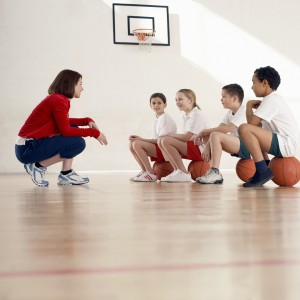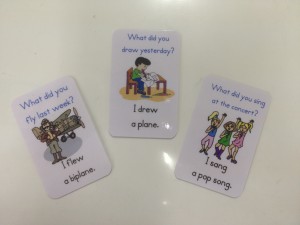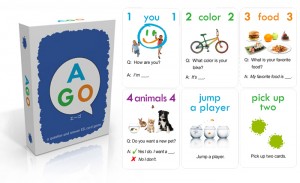curriculum EFL eikaiwa ES evaluation expectations kids language courses Language learning school management teaching testing theory university
by sendaiben
2 comments
English teachers aren’t really teachers, are they?
This is something I have been thinking about for a while now.
I was just drafting this post when I saw this link by Steve ‘the Linguist’ Kaufmann (NB: I started writing this post three months ago).
I’m not sure that we EFL teachers are actually teachers.
After all, we are in charge of helping learners become proficient in a language. I see this as a skill to be practiced rather than a set of knowledge to be taught. I have always compared language learning to sports, and described what learners should be doing in terms of practice and training. The sports analogy seems to work very well:
1. some people are naturally better at sports/languages than others
2. anyone can get better at sports /languages through practice
3. formally studying sports/languages is of limited use on its own, although it can help if done in conjunction with practice
4. being good at one sport/language will often help you with another one
5. if you want to get better at a sport/language, you should aim to do meaningful practice every day
6. training equipment will help you improve at a sport/language, but is no substitute for practice
7. drills can be helpful, but you also need to practice under realistic conditions if you want to get better at a sport/language
You can probably make similar analogies to playing a musical instrument, or producing art.
The point is, if we are coaches rather than teachers, don’t we need to re-examine our teaching situation?
Are formal classes, exams, class assignments, and grades appropriate ways to help our students master the skill of English language use (as opposed to the academic equivalent knowledge), or are they actually counter-productive?
Now, most of us are restrained by our work situations: we can’t abolish classes or grades, but perhaps there is some way we can change our classes to make them more practical. I’ll be thinking about that in the new academic year, starting in April here in Japan.
curriculum EFL expectations kids school management teaching theory
by sendaiben
leave a comment
An interview with Ken Robinson
A great interview with Ken Robinson.
curriculum EFL ES expectations kids online resources teaching TED theory very young learners
by sendaiben
4 comments
Self-control (don’t eat the marshmallow YET)
This is a great presentation. Not sure if I have posted it before, but it’s probably worth a few minutes of your time (love the videos of kids at the end).
EFL eikaiwa ES kids language courses Language learning levity materials speaking teaching vocabulary
by sendaiben
6 comments
David Lisgo’s new card games
I am a big fan of David Lisgo‘s work, especially the Switchit card game.
Recently he has made a new set of card games based on verbs. Unlike Switchit, which is similar to UNO, these are more like a combination of Go Fish and Happy Families or Rummy.
Play is simple: players are dealt a number of cards and they try to collect sets of four by asking other players: if the other player has the cards, they hand them over; if not, the asking player takes a card from the middle (like Go Fish). Play continues until all the cards are gone or the time is up.
One caveat is that the game if played in full can take a long time: I have found setting a time limit or removing cards or sets from the deck helps speed things up.
Our students enjoyed the new game and I liked it very much as well. Students are talking a lot more, using full sentences, and getting a lot of practice with verb forms. These cards are a great addition to a teacher’s toolbox.
curriculum EFL eikaiwa ES kids language courses Language learning school management speaking teaching
by sendaiben
4 comments
AGO: the best 900 yen you’ll spend this week
AGO is a card game, similar to UNO or Switchit, that practices simple question and answer patterns. It is ideal for upper elementary or junior high school and above. Students play to get rid of all their cards: the first person to do so is the winner. The game mechanics are easy, and almost all students already know them from playing UNO.
There are eventually going to be three levels: aqua, green, and orange (hence AGO, but I suspect that the pun with eigo was also a factor in naming this product). The first level, aqua, contains very easy questions like ‘do you like…?’ and ‘what season is it now?’. There is some scope for personalization.
The green level just came out at the end of last month, and includes more complex questions, more scope for students to make their own questions, and more ‘game cards’ (‘pick up’, ‘jump’, and so on).
The orange level is due to be released next year.
The production values are pretty good and the cards look and feel great. Well worth the 900 yen, especially if you teach junior high school and up.


